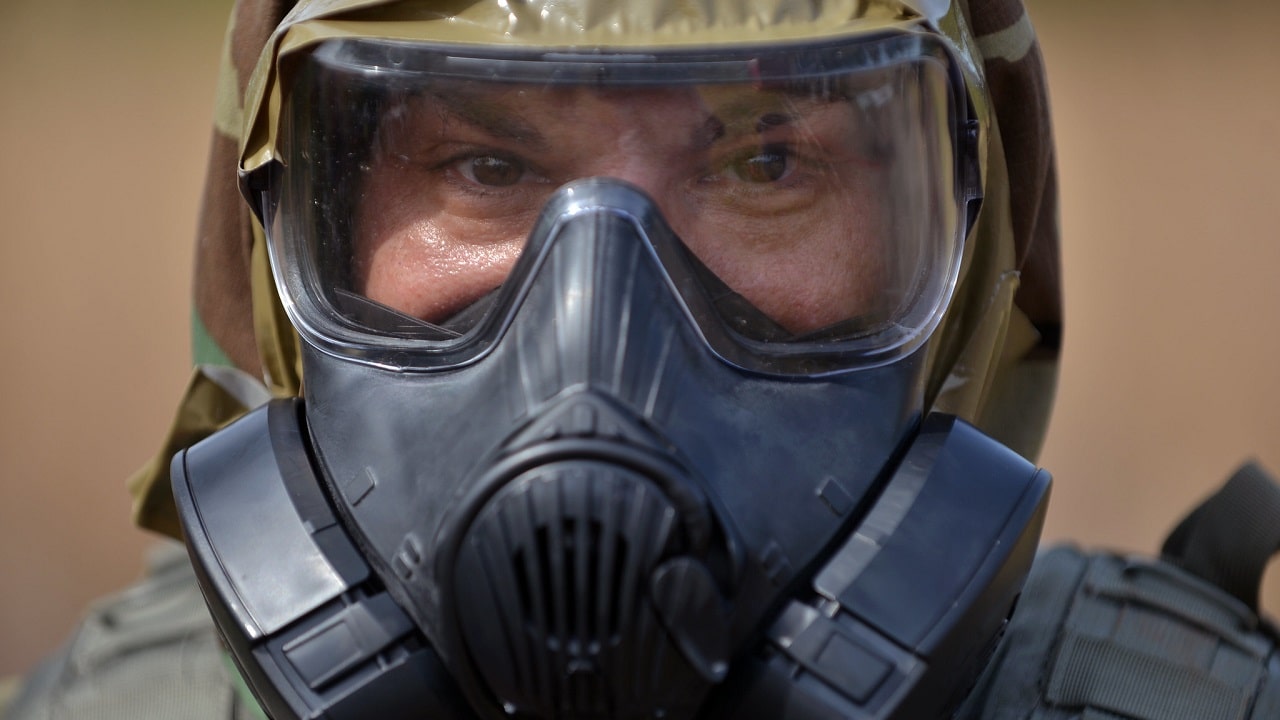As Iran quickly approaches its nuclear breakout time, the U.S. and its regional adversaries must consider the potential scale and scope of the regime’s asymmetrical warfare endeavors. While the extent of Iran’s ability to obtain weapons of mass destruction (WMD) and the technology to deliver them remains murky, the regime’s pursuit of nuclear and ballistic-missile capabilities has only intensified over the years.
Though the Islamic Republic denies possessing any chemical weapons today, open-source reports tracking the import of dual-use materials into Tehran support the theory that the regime does have some sort of program in place.
In the 1980’s, Iranian soldiers suffered greatly from Iraq’s use of chemical warfare during the eight-year-long Iran-Iraq War. The Iraqi forces, led by Ba’athist President Saddam Hussein, justified its use of chemical weapons by claiming Iran employed the tactic first. Throughout the war, Iraq used mustard agents among other chemicals in various battles, resulting in approximately 100,000 Iranian deaths. Even more soldiers and civilians were injured and suffered from long-term health conditions.
A 1987 U.N report concluded that “Iraqi forces have been affected by mustard gas and a pulmonary element, possibly phosgene. In the absence of conclusive evidence of the weapons used, it could not be determined how the injuries were caused.” Three years later, a declassified report from the Defense Intelligence Agency said that Iran used chemical weapons late in the war, “but never as extensively or successfully as Iraq.”
In 1993, Iran signed the Chemical Weapons Convention (CWC), committing never to develop, produce or possess chemical weapons in any way, shape, or form. While Iran claims to have destroyed its chemical weapons stockpile prior to the signing of the treaty, this action has not been confirmed. In 2020, the Director of the Central Intelligence Agency testified before Congress that U.S. experts believe Iran’s chemical warfare program remains active. Subsequent reports in 2002 and 2011 mirrored the concern that Iran maintains the ability to produce chemical weapons agents. Last year, the U.S. accused Iran of not complying with the CWC for an “incomplete stockpile and facilities declaration and alleged concern that it (Iran) may be pursuing pharmaceutical-based agents for military purpose.”
The U.S. passed the Iran Nonproliferation Act in 2000, which instructed the government to take punitive action against entities that are known to be providing material aid to WMD programs in Iran. Following the passing of this legislation, the U.S. has sanctioned numerous international companies in relation to Tehran’s WMD programs. The Chinese firms Zibo Chemet Equipment Company and the Nanjing Chemical Industries group are among the sanctioned entities believed to be supporting Iran’s chemical imports. Iran’s acquisition of dual-use chemicals has unclear purposes, but industry officials are skeptical that they are completely harmless.
The international community has grown increasingly concerned with Iran’s buildup of raw nuclear materials and the expansion of its ballistic missile arsenal. While the regime asserts that its ambitions are purely scientific and economical, its history of malign behavior suggests otherwise.
What the Experts Think:
“Iran would do whatever it takes to secure its national interests,” explained a former George W. Bush Senior Department of Defense offical. “While I can’t say that there is 100% certainty Iran has chemical weapons, I would not be shocked if they wanted them or had an active program to build them. They know they can’t compete with the U.S. in any sort of conventional war, so hence the need to develop things like nuclear weapons, ballistic missiles, and maybe even chemical weapons.
Maya Carlin is a Middle East Defense Editor with 19FortyFive. She is also an analyst with the Center for Security Policy and a former Anna Sobol Levy Fellow at IDC Herzliya in Israel. She has by-lines in many publications, including The National Interest, Jerusalem Post, and Times of Israel.

